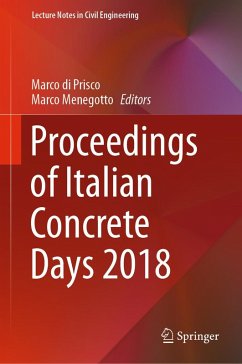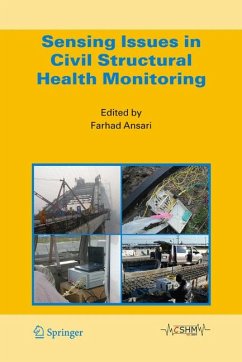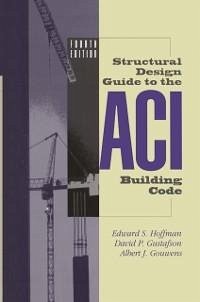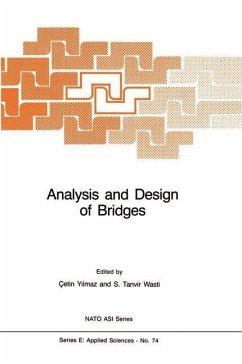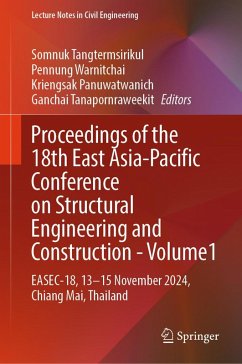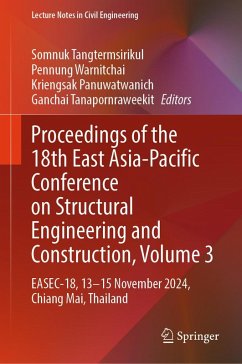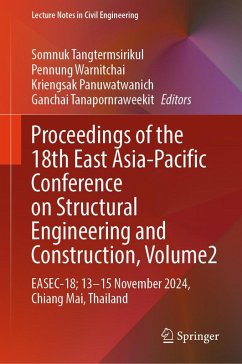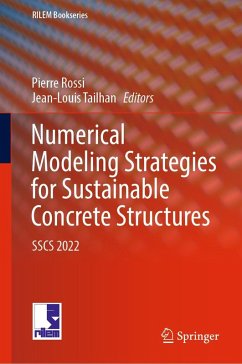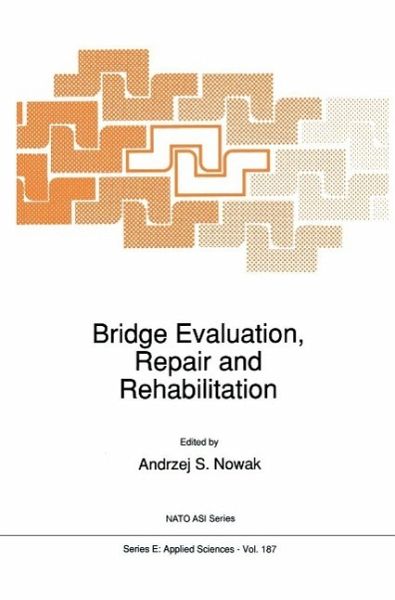
Bridge Evaluation, Repair and Rehabilitation (eBook, PDF)
Versandkostenfrei!
Sofort per Download lieferbar
232,95 €
inkl. MwSt.
Weitere Ausgaben:

PAYBACK Punkte
116 °P sammeln!
Evaluation, repair and rehabilitation of bridges are increasingly important topics in the effort to deal with the deteriorating infrastructure. For example, in the United States about 40 percent of the nation's 570,000 bridges are classified, according to the Federal Highway Administra tion's (FHW A) criteria, as deficient and in need of rehabilitation and replacement. In other countries the situation is similar. FHW A estimates the cost of a bridge replacement and reha bilitation program at 50 billion dollars. The major factors that have contributed to the present situation are: the age, inad...
Evaluation, repair and rehabilitation of bridges are increasingly important topics in the effort to deal with the deteriorating infrastructure. For example, in the United States about 40 percent of the nation's 570,000 bridges are classified, according to the Federal Highway Administra tion's (FHW A) criteria, as deficient and in need of rehabilitation and replacement. In other countries the situation is similar. FHW A estimates the cost of a bridge replacement and reha bilitation program at 50 billion dollars. The major factors that have contributed to the present situation are: the age, inadequate maintenance, increasing load spectra and environmental contamination. The deficient bridges are posted, repaired or replaced. The disposition of bridges involves clear economical and safety implications. To avoid high costs of replacement or repair, the evaluation must accurately reveal the present load carrying capacity of the struc ture and predict loads and any further changes in the capacity (deterioration) in the applicable time span. Accuracy of bridge evaluation can be improved by using the recent developments in bridge diagnostics, structural tests, material tests, structural analysis and probabilistic methods. There is a need for an international exchange of advanced experience to increase the research effi ciency. The Workshop is organized on the premise that the exchange of existing American and European experience in the area of bridge evaluation, repair and rehabilitation is beneficial for both parties involved.
Dieser Download kann aus rechtlichen Gründen nur mit Rechnungsadresse in A, B, BG, CY, CZ, D, DK, EW, E, FIN, F, GR, HR, H, IRL, I, LT, L, LR, M, NL, PL, P, R, S, SLO, SK ausgeliefert werden.



